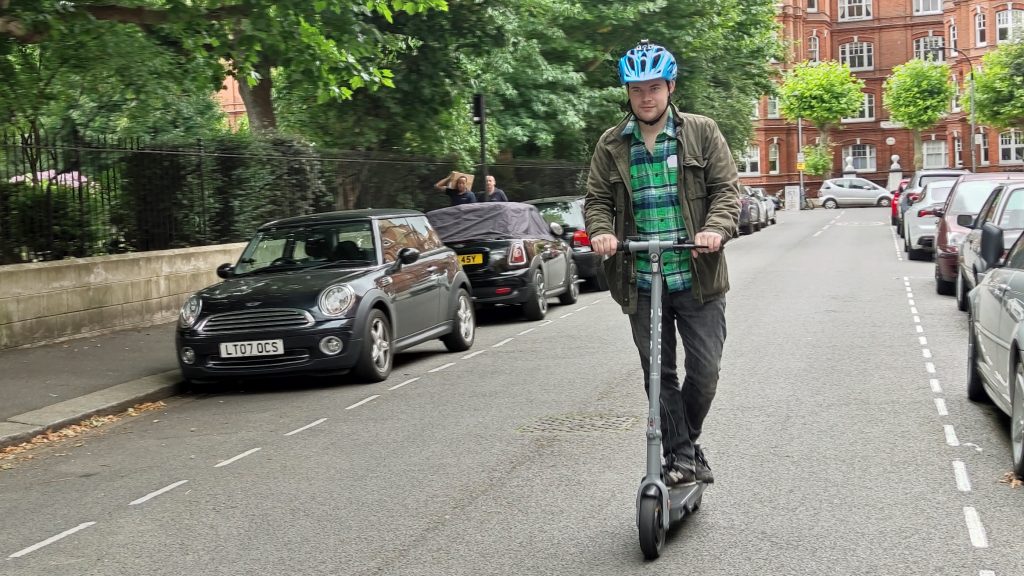Part 1: Common Causes of Fall from Scooter Injuries
1. Loss of Balance:
Falls from scooters often occur when riders lose their balance while navigating various road conditions. Uneven surfaces, such as potholes or cracks, can cause scooters to wobble and throw riders off-balance. Additionally, unexpected obstacles like debris or loose gravel can further disrupt stability. Abrupt changes in speed or direction, such as sudden braking or sharp turns, can also lead to loss of balance and subsequent falls.
To prevent these types of accidents, scooter riders must prioritize maintaining proper balance. This involves keeping a firm grip on the handlebars, distributing weight evenly, and adjusting body position as necessary. It is essential to stay vigilant and anticipate potential hazards on the road, including uneven surfaces and objects in your path. Proper balance, combined with cautious riding techniques, can significantly reduce the risk of falls from scooters and minimize the chances of sustaining injuries. So, remember to stay balanced, be aware of your surroundings, and ride cautiously to ensure a safe and enjoyable scooter experience.
2. Collisions with Objects or Vehicles:
Another common cause of fall from scooter injuries is collisions with objects or vehicles. Scooter riders may encounter parked cars, pedestrians, cyclists, or other scooters on the road, leading to accidents and falls. It is crucial to be aware of your surroundings and practice defensive riding.
Part 2: Understanding ICD-10 Codes for Fall from Scooter Injuries
1. W00-W19:
Codes starting with W00-W19 are classified as falls due to slipping, tripping, or stumbling without collision. These codes are used when a scooter rider falls without directly hitting any object or vehicle.
2. V00-V99:
Codes starting with V00-V99 are used for fall-related injuries caused by a collision with an object or vehicle. These codes specify the type of object or vehicle involved in the accident, such as a pedestrian, cyclist, or another scooter.

Part 3: Types of Injuries and Their ICD-10 Codes
1. Fractures:
Fractures are a common type of injury resulting from falls from scooters. Depending on the location and severity of the fracture, different ICD-10 codes are used. For example, a fracture of the wrist would be coded as S52, while a fracture of the ankle would be coded as S82.
2. Head Injuries:
Falls from scooters can also lead to head injuries, ranging from mild concussions to more severe traumatic brain injuries. These injuries are classified using ICD-10 codes starting with S06, with specific codes indicating the severity and type of head injury.
Part 4: Preventing Fall from Scooter Injuries
1. Proper Helmet Use:
Wearing a helmet is crucial in preventing head injuries during falls from scooters. Choose a helmet that fits properly and meets safety standards. Secure the helmet tightly and make sure it covers the forehead and the sides of the head.
2. Defensive Riding and Awareness:
Practicing defensive riding and being aware of your surroundings can significantly reduce the risk of falls from scooters. Stay alert, scan for potential hazards, and anticipate any changes in the road or traffic conditions. Maintain a safe distance from vehicles and objects to allow for reaction time.
In conclusion, falls from scooters can result in various injuries, including fractures and head injuries. Understanding the ICD-10 codes associated with these injuries is important for proper diagnosis and medical documentation. Taking measures to prevent fall from scooter injuries, such as maintaining balance, practicing defensive riding, and wearing a helmet, can significantly reduce the risk of accidents and promote safe scooter riding. Remember, safety should always be the top priority when enjoying the convenience and fun of riding a scooter.
